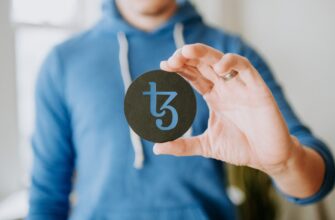- Cryptocurrency Owner Died in India: Inheritance Guide & Legal Solutions
- The Legal Void in Crypto Inheritance
- Immediate Steps for Heirs After a Crypto Holder’s Death
- Proactive Protection: Safeguarding Your Crypto Legacy
- Legal Pathways to Claim Inherited Cryptocurrency
- FAQs: Cryptocurrency Inheritance in India
- Conclusion: Navigating the Digital Legacy Labyrinth
Cryptocurrency Owner Died in India: Inheritance Guide & Legal Solutions
When a cryptocurrency owner dies in India, families face complex legal and technical challenges accessing digital assets. With India’s crypto market exceeding $6 billion and unclear inheritance laws, understanding how to secure or claim these assets is critical. This guide covers practical steps, legal frameworks, and preventive measures to navigate this emerging dilemma.
The Legal Void in Crypto Inheritance
India lacks specific laws governing cryptocurrency inheritance, creating ambiguity. Key considerations include:
- No nominee system: Unlike bank accounts, crypto wallets don’t allow nominee declarations.
- Private key dependency: Access hinges on cryptographic keys, not legal documents.
- Tax ambiguities: Inheritance tax applicability remains untested in courts.
- Exchange limitations: Platforms like CoinDCX or WazirX require court orders for asset transfers.
Immediate Steps for Heirs After a Crypto Holder’s Death
- Secure devices: Preserve phones, computers, and hardware wallets without altering data.
- Document discovery: Search for written keys, seed phrases, or password manager access.
- Inventory assets: Compile exchange account details, wallet addresses, and transaction histories.
- Obtain death certificate: Essential for all legal proceedings.
- Consult specialists: Engage crypto-savvy lawyers and forensic experts immediately.
Proactive Protection: Safeguarding Your Crypto Legacy
Prevent inheritance hurdles with these measures:
- Encrypted digital wills: Use services like Codicil to store access instructions with legal executors.
- Multi-signature wallets: Configure wallets requiring approvals from heirs and trustees.
- Offline key storage: Store seed phrases in bank lockers with inheritance documentation.
- Periodic audits: Maintain updated asset lists accessible to trusted family members.
Legal Pathways to Claim Inherited Cryptocurrency
Heirs typically require:
- Succession certificate: Issued by district courts under the Indian Succession Act, 1925.
- Court orders: Mandate exchanges to release assets after verifying legitimacy.
- Probate: Essential if the deceased left a will mentioning crypto holdings.
- Legal heir certificates: For intestate cases, facilitating asset distribution per Hindu Succession Act or other personal laws.
FAQs: Cryptocurrency Inheritance in India
Q: Can exchanges freeze accounts upon the owner’s death?
A: Yes. Platforms like CoinSwitch Kuber suspend accounts after death notifications until legal documents are provided.
Q: Are inherited cryptocurrencies taxed?
A: Currently no inheritance tax, but capital gains tax applies if heirs sell assets. Valuation is based on acquisition cost of the original owner.
Q: What if seed phrases are lost?
A: Recovery is nearly impossible. Forensic experts may extract data from devices, but success isn’t guaranteed.
Q: How long does the inheritance process take?
A: Typically 6-18 months due to court procedures and exchange verification protocols.
Q: Can crypto be willed to minors?
A: Yes, but court-appointed guardians must manage assets until the beneficiary turns 18.
Conclusion: Navigating the Digital Legacy Labyrinth
With India’s crypto regulations evolving, proactive estate planning is non-negotiable. Document access methods legally, inform executors, and consult specialists to ensure your digital wealth reaches loved ones. Heirs facing unexpected losses should prioritize legal counsel to navigate this intricate landscape efficiently.








